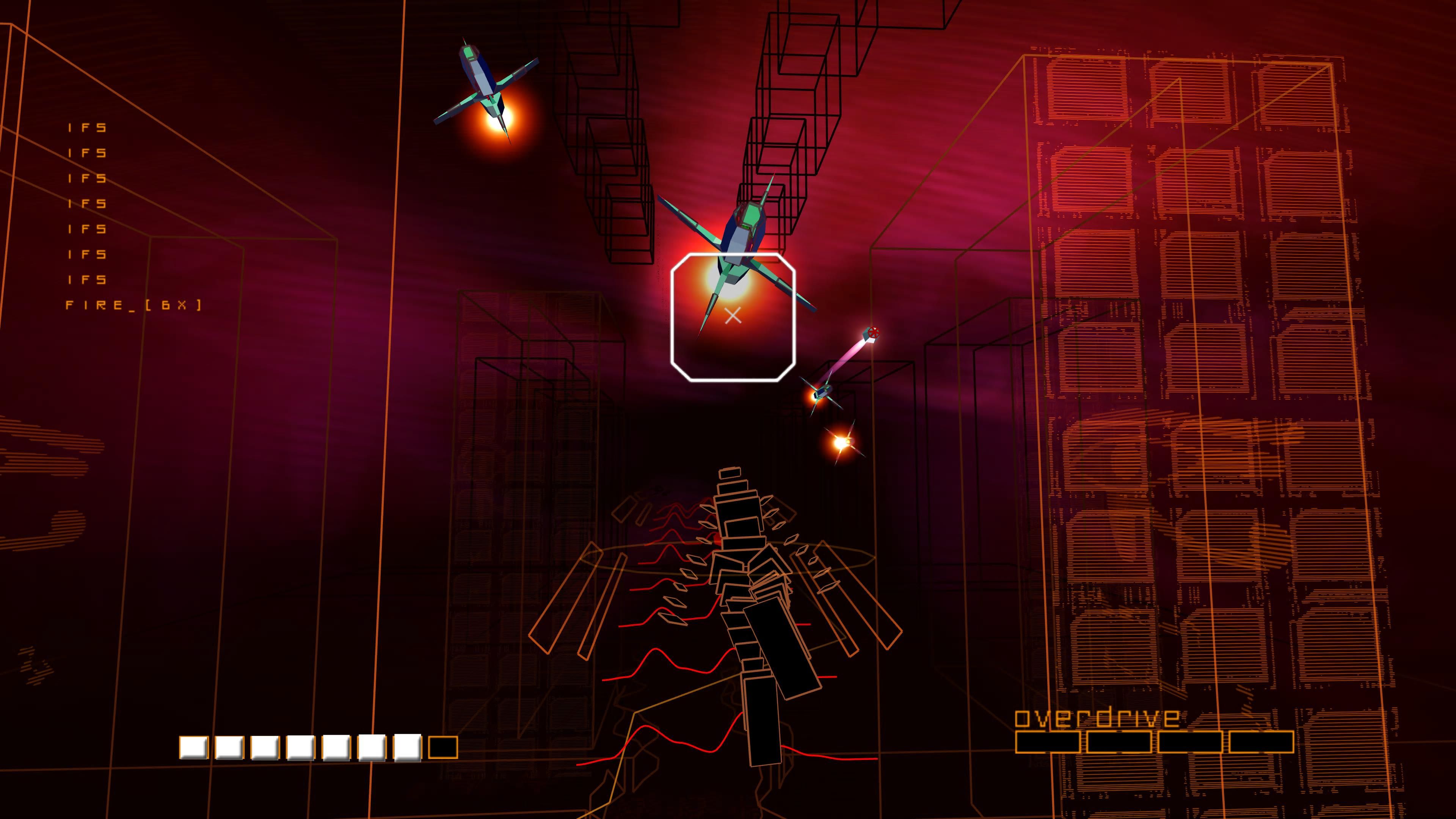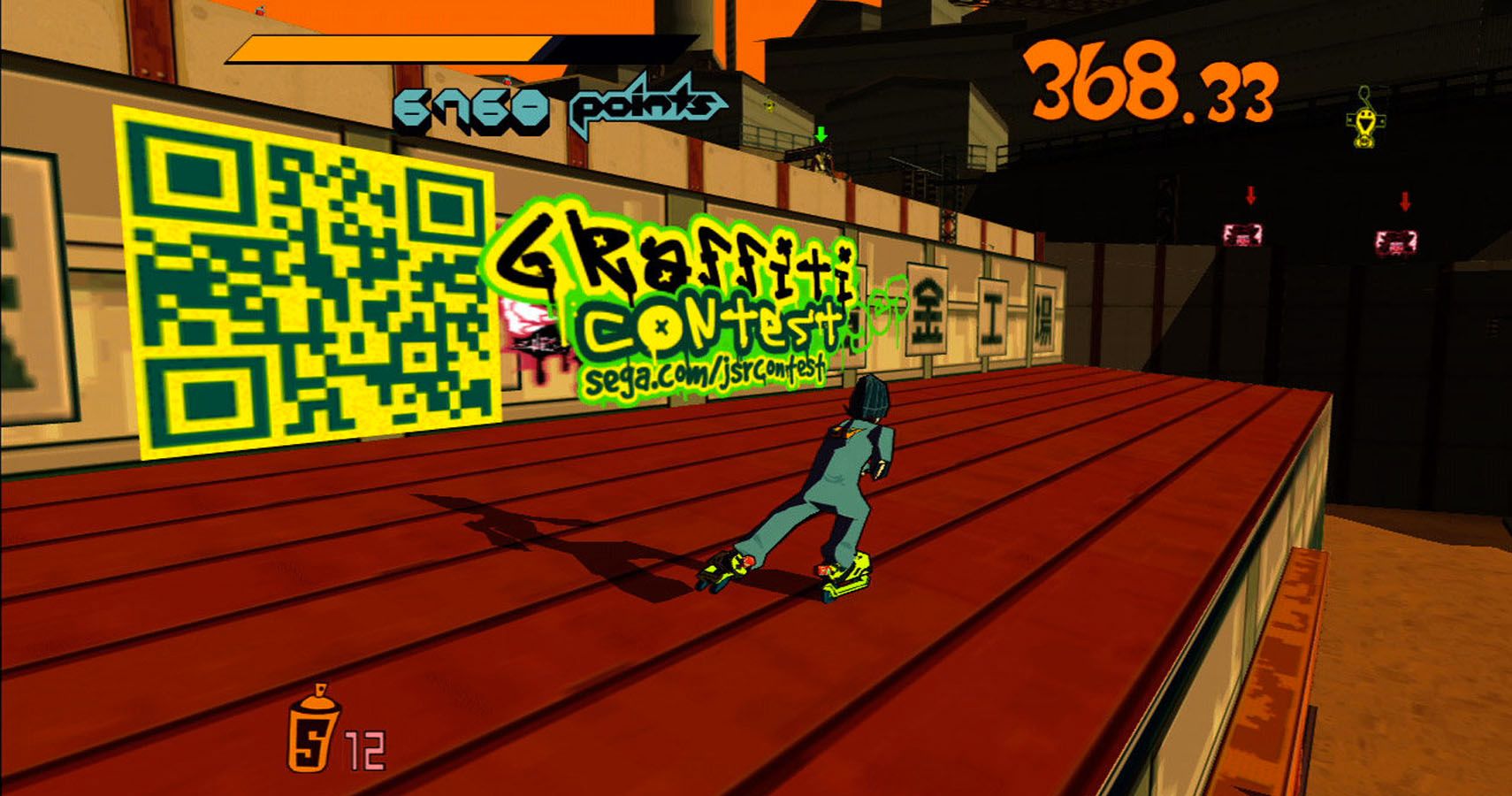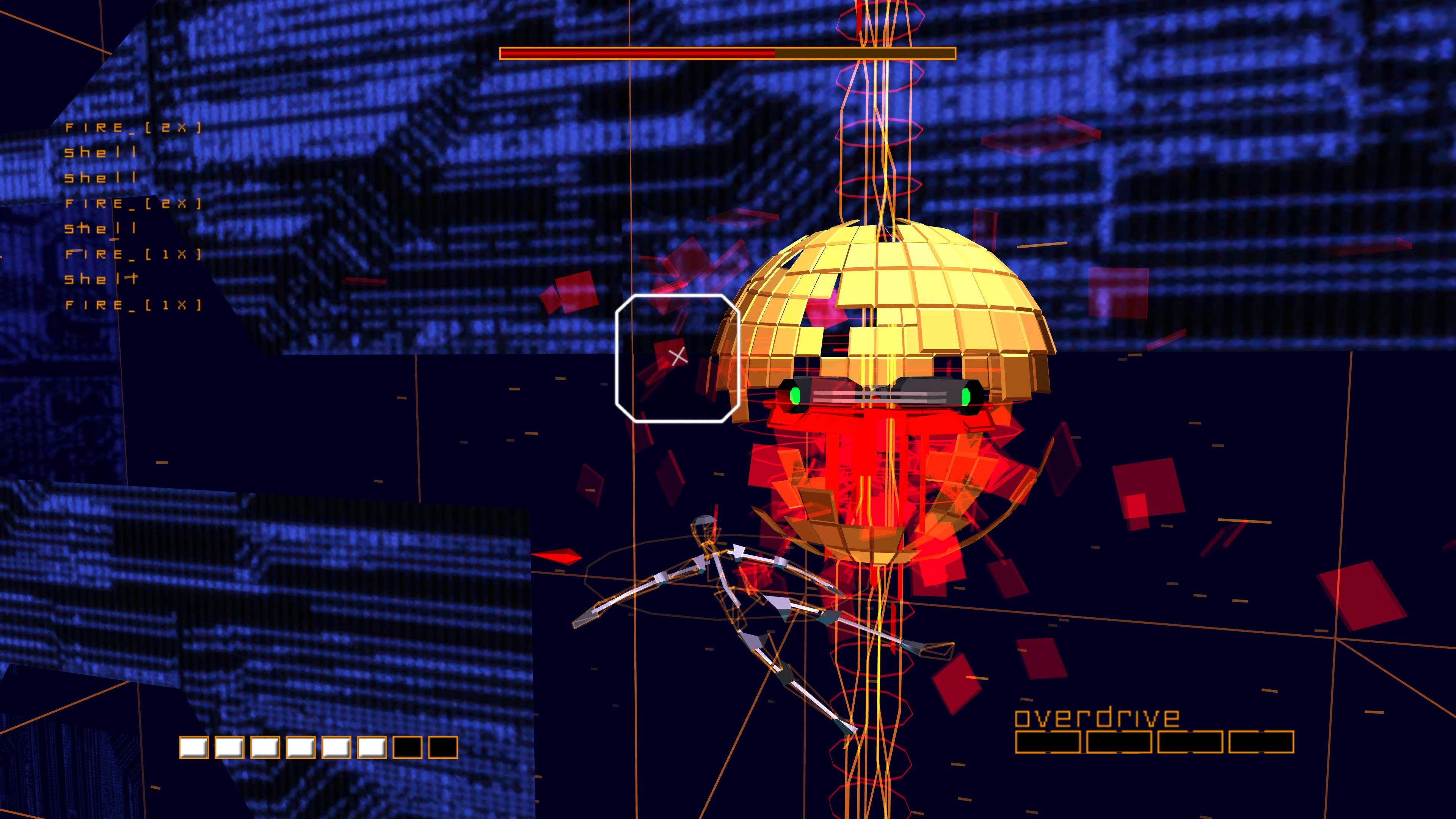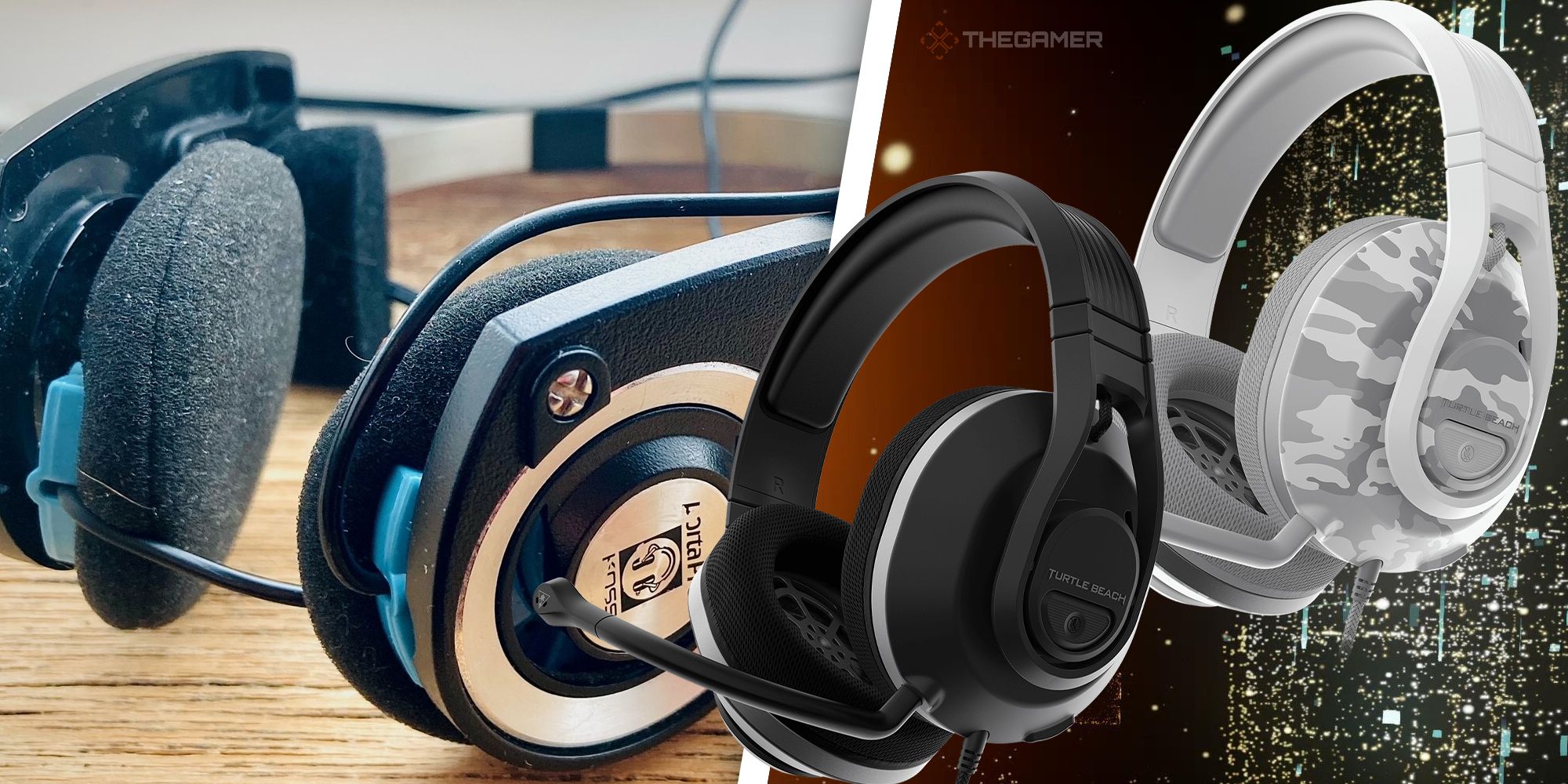Until recently, I’d been using an old pair of Koss Porta Pro headphones with my PS5. The Porta Pros feel flimsy, like some ‘80s relic from the days of the Sony Walkman. But these budget ‘phones punch far above their weight, and I’ve enjoyed them for everyday music listening while they perform admirably for video games.
One evening, wanting a break from the exhausting immersiveness of single-player narrative games, I downloaded the copy of Rez Infinite I had languishing in the background.
An update of the 21-year-old original, Rez Infinite is a revelation. I’d heard of Rez around the time it launched since there was a chorus of critical acclaim for it. Designed by Tetsuya Mizuguchi, whose credits include Space Channel 5, Sega Rally Championship, Lumines, and Tetris Effect, this Dreamcast title was conceived following a trip to Europe, when rave and club culture was seeping into the mainstream. Back then, booths featuring Wipeout for punters to play were installed in nightclubs, and tracks from Leftfield, Chemical Brothers, and Orbital were included in the PAL release of the Psygnosis classic.
I never played Rez when it first came out – it was too expensive to buy a game that in reviews was criticised for its short length – but I remember being fascinated by its distinctive style and the way it built a feedback loop of dynamic, escalating electronic music as you played, an innovative gameplay design that was pretty much universally lauded at the time.
Sega has long had a zany, edgy, and innovative spirit running through it, while even Sonic is known for its soundtrack. But around the early 2000s, games such as Crazy Taxi, Jet Set Radio, Space Channel 5, and Rez, amplified this experimentalism and made Sega seem like the coolest console cat in town.
I was excited to tap into this legacy and finally experience all that hype, long overdue. I wasn’t disappointed. I found Rez to be a burst of colour, freshness, and audiovisual invention similar to how I found watching Spider-Man: Into the Spider-Verse for the first time. The on-rails musical shooter is also delightfully simple to play – no need to worry about stealthing around or controlling my horse or keeping a close eye on story beats. Just vibe with the music and the simple yet stylish graphics.
In Rez, you play a digital avatar infiltrating some kind of enormous digital mainframe and you have to shoot down flying bug/spaceship enemies to get to end-of-level bosses. The plot is wafer thin but this is not why you play Rez. The music changes as you play, depending on how you’re progressing and the attacks you chain. It builds gradually, but occasionally moves up a gear all of a sudden, and moves into crescendos, and sometimes drops, and when the beats start kicking in, you feel it. This was pure arcade fun and I was sliding into its flow and the music coming out of my headphones was a pleasure. So much so that I started looking into gaming headsets.
With any tech product, I’m a huge geek and I’ll spend hours checking and cross-checking. Tech site reviews, Amazon customer reviews, YouTube product tests, blogs, forums, as well as the advice of fellow geeky friends are all leant on. Eventually I came up with a shortlist: the SteelSeries Arctis 7P, Sony’s Pulse 3D, and the HyperX Cloud 2. Weighing up my options, the SteelSeries seemed a hefty investment. The Sony first-party headset seemed a good option but was only useful for the PS5 and little else. The HyperX Cloud seemed the best compromise but it failed to excite me somehow. It was then that I chanced upon the Turtle Beach Recon 500.
The Turtle Beach Recon 500 is quite basic. It doesn’t have wireless capabilities like the Sony Pulse 3D or the excellent mics of the SteelSeries Arctis range. But it did have a couple of advantages that swayed me. The first, and most important to me, was the sound quality. From reviews, it seemed like the 60mm drivers used by the Recon 500 are excellent and reviewers praised the wide soundstage and audio quality. Second was the price. At the time of purchase, Amazon UK sold it for £58.60.
Features such as noise-cancelling and wireless are all missing from the Turtle Beach Recon 500, but sometimes absence can turn into advantage, and the fact the Recon 500 are wired means it’s versatile, allowing me to plug it into my laptop, iPad, or PS5, as well as the Nintendo Switch or Xbox, if I owned them. Meanwhile, it seemed these features were sacrificed all in order so Turtle Beach could procure the best drivers they could for the price. Additionally, with these gadgets I always prefer them to be twofers, and I was hoping these gaming headsets could also work with general music listening. But with headphones, the proof is always in the pudding.
When I stuck the jack into the DualSense I had high expectations. The Recon 500 met them. In Red Dead Redemption 2 I could now hear everything. The roar of bears, the different crackle of surfaces as your horse’s hooves move across different terrain, and notes from the subtle in-game score were all there, in the mix, to be heard. It was a deeper and more subtle soundstage. In Miles Morales, the 3D audio that Sony touts for the PS5 came to the fore. In a battle staged in a subway area, I could hear my combatant’s voice echoing around, and swinging through New York I could hear the Recon 500s were far more expansive than the Porta Pros I was using before. It was just superior immersion. But a question remained – could the Turtle Beaches also slap?
Yes. Yes, they can. Playing Rez, and especially the modernised, higher-res Area X mode with 3D movement and heavier beats, I made sure to do a comparison test. Plugging in the Porta Pros and then the Turtle Beaches I found the latter was more than capable of recreating the feeling of being in a huge club with a DJ dropping sick beats. While the Porta Pros did a fine job considering their size and weight, it could not reproduce the more atmospheric and immersive sound the Recon 500 is capable of. I’ve also tried the Turtle Beaches for general music listening and they also do a fine job here. The tuning is different to regular hi-fi headphones as gaming headsets tend to emphasise a wider soundstage, which is important for competitive gaming such as hearing the approach of footsteps or gunfire, but I was pleased that the Recon 500 wasn’t only limited to gaming but can also double as good general headphones. The Turtle Beach comes with a removable mic which does a perfectly competent job.
All in all, I’d recommend playing Rez Infinite for something viscerally affecting, with its innovative musical gameplay – and I’d recommend it even more with a good headset to enjoy it with.
The author paid for the headphones mentioned and was not provided them by Turtle Beach.
Source: Read Full Article




